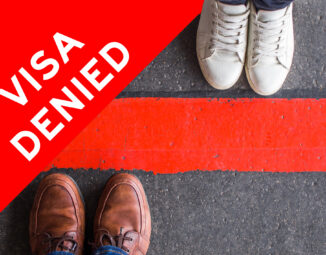New Blanket L Form Reflects Heightened Scrutiny of Outsourcing Companies
In recent years the L-1 Intra-Company transfer visa program has come under scrutiny. Critics of the program, which allows a multinational company to transfer an executive, manager, or worker with “special knowledge” from a foreign affiliate to one of its U.S. offices, complain that the program has caused the displacement of American workers and is used as a “job shop” to transfer workers to third party entities in violation of U.S. employment law. In a partial attempt to cut down on abuse and heighten government scrutiny, the U.S. Citizenship and Immigration Service (USCIS) has introduced a revised version of Form I-129S, which is used when seeking an L-1 visa under the Blanket L program.
For certain eligible companies the Blanket L petition pre-qualifies the required intracompany relationship in advance of filing individual L-1 petitions, making the transfer of international personnel more efficient and responsive to business needs. However, according to some, including Senator Charles Grassley (R – Iowa), the L-1 visa has been subject to abuse. He and Senator Dick Durban (D- Illinois) have introduced legislation to reform the L-1 and H-1B visa programs, but like most immigration reform measures taken up in Congress in recent years, these efforts have been stalled.
In addition to a number of largely cosmetic changes, the new I-129S form requires more information about the details of prior employment, including listing dates of employment and salary received. The form also requires the petitioning employer to identify “the percentage of time the beneficiary will spend performing the duties on a daily basis in the proposed U.S. position.” If an employer is seeking L-1B specialized knowledge status for a beneficiary and the beneficiary will work primarily offsite, the employer must provide the supervisor’s name, how the work will be supervised, and explain how the work offsite is not “labor for hire.” The new form also includes a declaration by which the employer attests under penalty of perjury that it has reviewed the petition and that its contents are “complete, true, and correct.” This more detailed certification puts the petitioner on notice for possible job site audits.
The new Form I-129S must be used exclusively for all applications filed after August 29, 2016, and the Department of State has confirmed that Blanket L applicants must also present the new form at interviews scheduled after August 29, 2016. The new form adds a burden of time to complete it accurately and thoroughly, especially if offsite assignments are contemplated for the beneficiary. To avoid an L-1 Blanket visa denial, employers are advised to consult skilled immigration counsel if a Blanket L petition is being contemplated.



